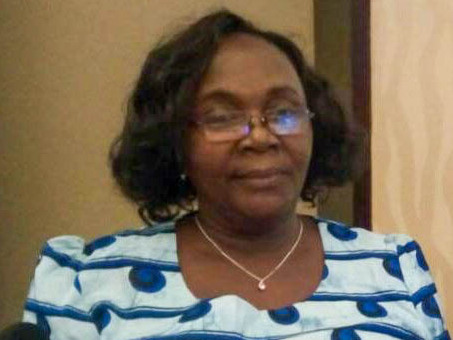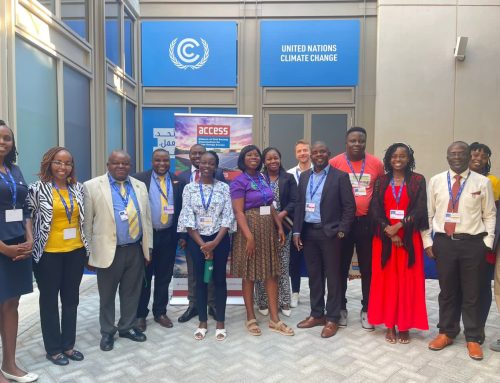Dr. Sabina Anokye Mensah is the Founder and Chief Executive Officer of Anomena Ventures based in Ghana. She is the National Focal Person for Gender and Energy Network, Ghana.
- What inspired you to work in the energy sector?
After graduating Kwame Nkrumah University of Science and Technology with a degree in Biochemistry, I was posted to the GRATIS Foundation in Tema to work as the women’s project Officer in March 1988.
My role was to empower women entrepreneurs to adopt technology transfer in their food processing activities. I later realized we were not paying attention to the energy access aspects of the women businesses after the technology transfer. In addition, as I travelled across the country, I came across women using firewood and traditional stoves to process palm oil, gari, coconut oil etc. The organization resolved to address the women’s agro-processing activities
I later resigned from my position as a Senior Technical Officer and Gender and Development Coordinator. I contracted welders to make the ANOMENA-Improved-LPG stoves. We held gender sensitisation workshops in urban, peri-urban and rural communities to educate the women on the need to use improved stoves.
| 2. What are the key achievements of your organization?
Using my own resources and with support from Ecowas Centre for Renewable Energy and Energy Efficiency (ECREEE), ANOMENA Ventures was able to set up an improved stove manufacturing centre to produce the Single unit, 2-in-1 and 3-in-1 ANOMENA-IMPROVED-Liquefied Petroleum Gas (LPG) stoves for street food vendors, institutions, commercial ventures amongst others. The production of the stoves coupled with the gender sensitisation programmes helped the women to switch to the use of LPG stoves, which are more efficient and helps them spend less time to cook. The cooking environment is clean, devoid of smoky ceilings and inhalation of smoke. Security for the women improved because they could work indoors at dawn. The use of the stoves has also enabled most of the beneficiaries to set up small-scale enterprises, enabling them to improve their lives. So far, my organization has benefited more than 10,000 women in Ghana. |
 |
- What challenges have you faced in your line of work?
Acquisition of land to build the manufacturing centre and bureaucracy in the registration process.
Another challenge is ensuring the women have enough capital to purchase the stoves. This led to the introduction of payment plan schedule that allows the women to pay in instalments, enabling more women to acquire the stoves to economically improve their lives.
- What’s your message as we commemorate International Women’s Month?
When women are adequately supported, they can become major players in energy access, clean energy and just energy transition spaces.





Leave A Comment